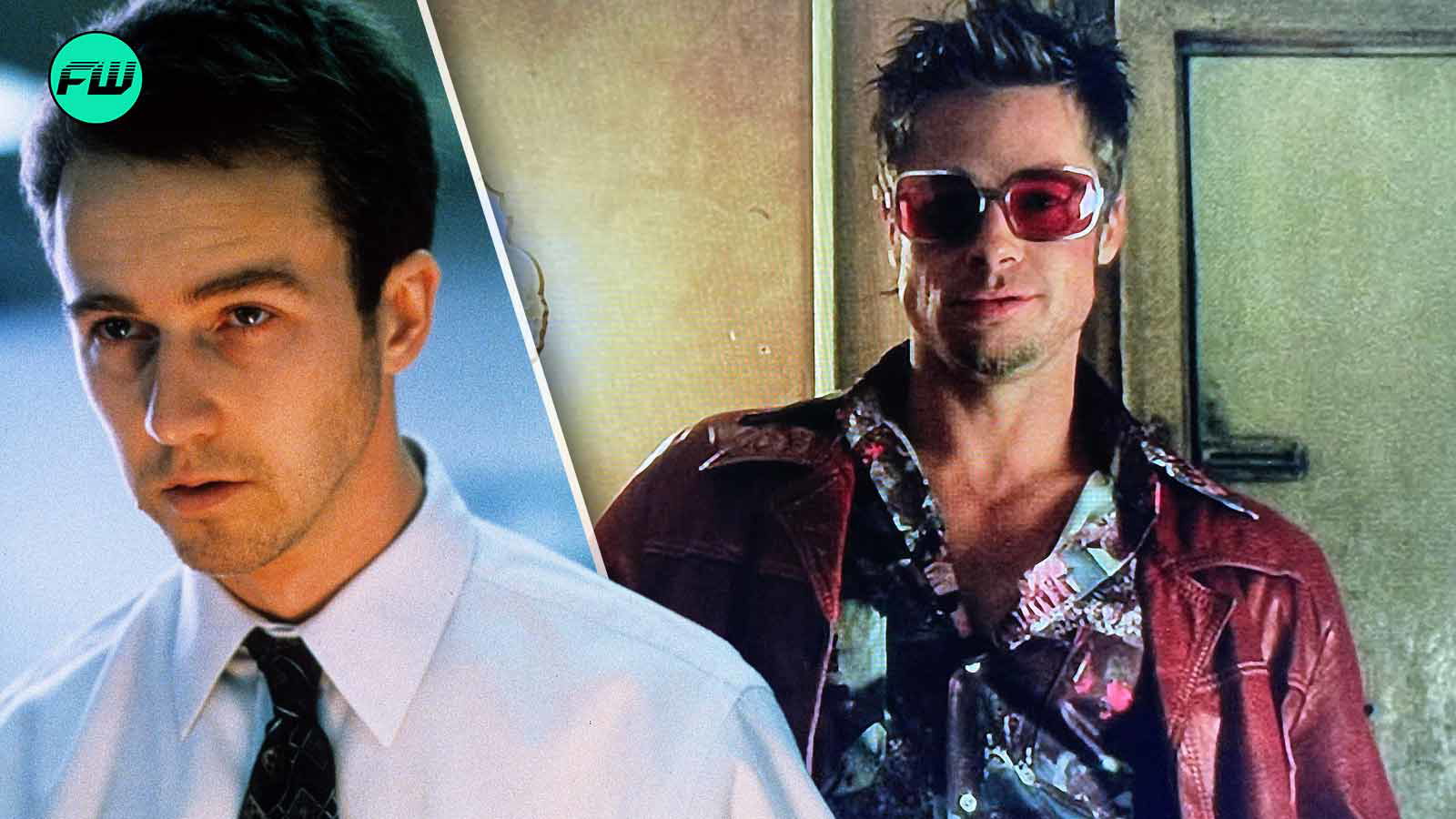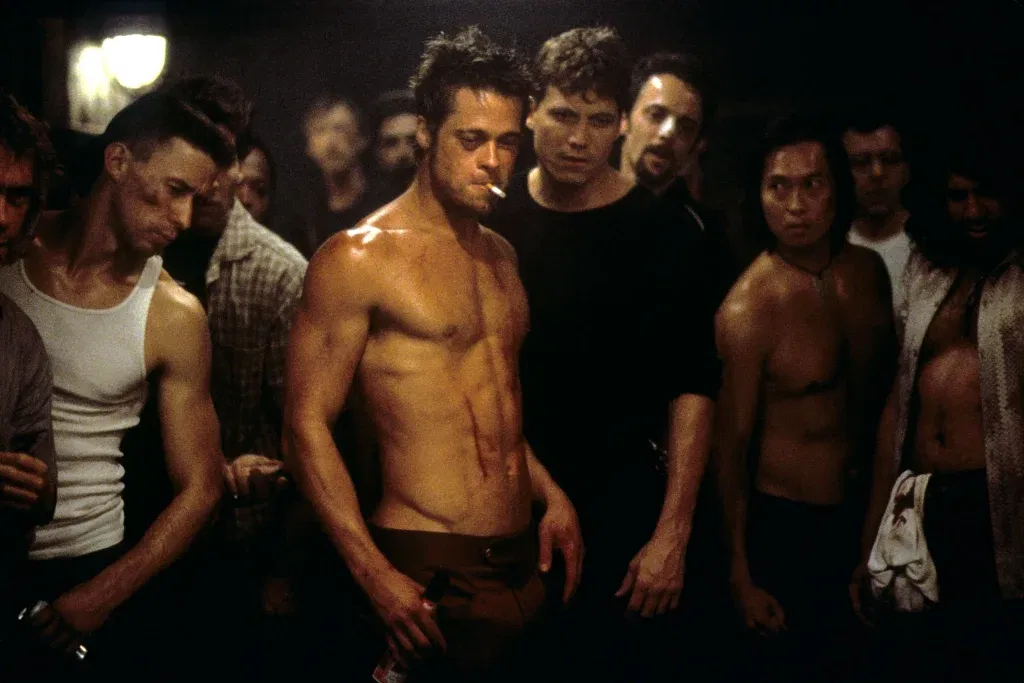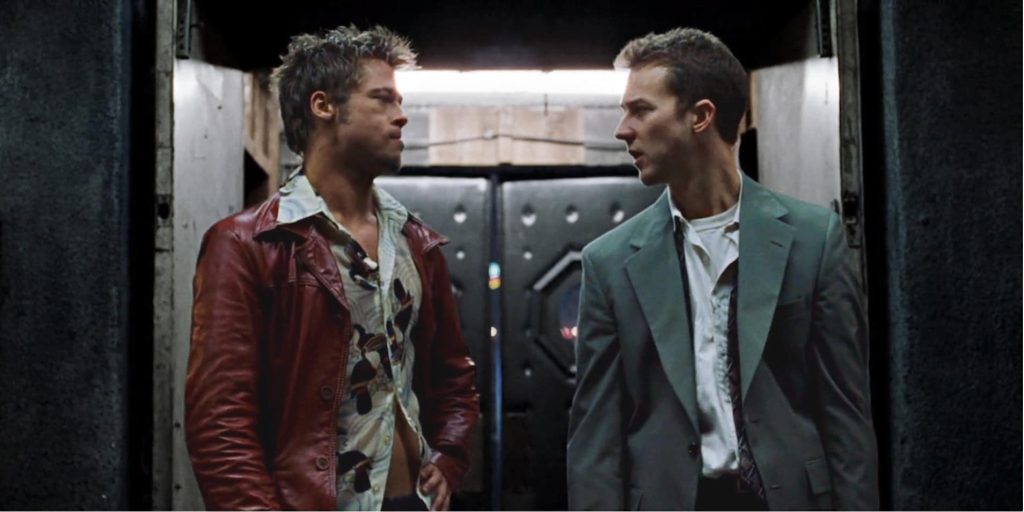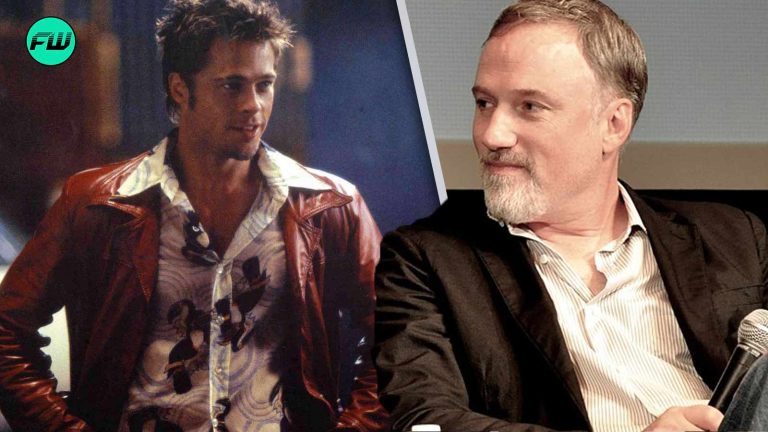
For years, David Fincher’s Fight Club has ignited storms of controversy for its unique theme, which tends to offer a visceral study of disaffected men and male rage. Starring Brad Pitt and Edward Norton, this 1999 film was no stranger to polarizing opinions, with its bold themes, gritty storytelling, and unapologetic critique of societal norms.

Even though today, it is considered a cultural touchstone in the history of cinema, critics have continued to dismiss it as an offensive and nihilistic film with nothing substantive to say about the real world we live in. However, Pitt and Norton have never been the ones to take such harsh criticism lying down and once blasted the critics with their unrelenting wit.
When Brad Pitt and Edward Norton blasted critics who dismissed Fight Club

When Fight Club was released it was either hated with a passion or madly loved by fans and critics, and there was no middle ground. But mostly, critics blasted the film for the way it depicted the male psyche and called it a film devoid of any substantive criticism or failing to depict the whole picture.
Yet, years after its release, the film could not hold more true seeing the times we are living in and it continues to be regarded as one of the greatest films ever to have been made. Hence, while now it is a cultural touchstone, Brad Pitt and Edward Norton, along with director David Fincher once famously went on to blast all those who criticized the film at 2009’s Spike TV Guys Choice Awards after winning the Discretionary Guy Movie Hall of Fame award.
In an award ceremony years after its release, the trio proceeded to name every major critic and their criticism in a hall full of Hollywood crowd. Norton started off with— Not to be egotistical, but we kind of knew that an award like this was in our future, the three then read out the reviews that ranged from The New York Observer’s Rex Reed calling it ‘a load of rancid, depressing swill from start to finish‘ to Evening Standard’s Alexander Walker’s harsh ‘this movie is not only anti-capitalist but anti-society and indeed anti-God.’
An audacious and bold step, the video continues to be revised by fans every few years or so. Hence, what was once vilified by critics has gone on to evolve into a significant cultural phenomenon that still resonates with audiences decades after its release.
David Fincher’s Fight Club is still as relevant as it was when it was released

It has been more than two decades since Fight Club was released and blasted by critics, failing to secure enough financial success. However, with the passage of time, its appeal and charm have only grown and it is as relevant today as it was when it first hit theatres in 1999.
Based on Chuck Palahniuk’s novel of the same name, it dealt with themes of consumerism, masculinity, and residential dissatisfaction, issues that have only intensified in today’s time. At its core, the Brad Pitt-starrer flick critiques the relentless pursuit of material wealth and social validation, revealing the empty and disconnected existence such individuals live.
Moreover, it explores the crisis of modern masculinity, questioning the traditional gender roles while delving deeper into the male psyche and showcasing male rage as a subculture. Even today these themes are just as relevant and destructive as they were years ago and become even more consequential when paired up with the corporate culture and consumer culture.
Even though its anarchic undertones and violence remain controversial, its ability to provoke thought and challenge societal norms allows Fight Club to continue to strike a chord with audiences in this increasingly chaotic and artificial world.
Fight Club is available to be streamed on Disney+.
This post belongs to FandomWire and first appeared on FandomWire


